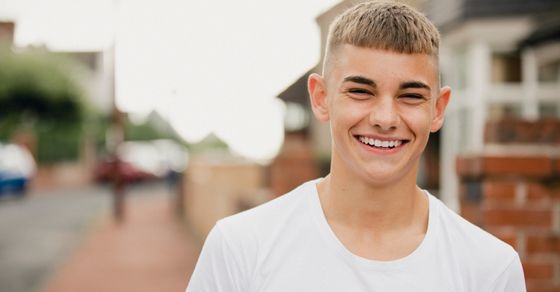Understanding ASD and Problematic Sexual Behavior: Why It’s More Common Than Many Realize
When conversations turn to autism spectrum disorder (ASD) and sexual behavior, discomfort often takes over. Unfortunately, that discomfort can lead to silence, misunderstanding, or delayed support. At Kaizen Academy, we believe that education and early intervention are essential—especially when it comes to problematic sexual behavior (PSB) in individuals with ASD.
This topic is not about blame or fear. It is about understanding why these behaviors occur, how they differ from neurotypical development, and what caregivers and professionals can do to support healthy outcomes.
What Is Problematic Sexual Behavior?
Problematic sexual behavior refers to sexual behaviors that are developmentally inappropriate, socially intrusive, or potentially harmful to the individual or others. Examples may include:
Public sexual behaviors (e.g., touching oneself in inappropriate settings)
Difficulty understanding consent or personal boundaries
Fixation on sexual topics without social awareness
Repetitive or rigid sexual behaviors
Importantly, problematic does not mean malicious or intentional. In individuals with ASD, these behaviors are almost always rooted in skill deficits—not harmful intent.
moreA New Year, A Sustainable You: Making Mental Health & Self‑Care Goals That Last
The start of a new year often comes with motivation, reflection, and a desire for change. We set resolutions with the best intentions—exercise more, stress less, be happier—but by February, many of those goals fade under the pressure of daily life.
At Kaizen Academy, we believe mental health and self‑care goals shouldn’t be overwhelming or short‑lived. Real change comes from small, consistent improvements that are realistic, compassionate, and sustainable.
Rethinking New Year’s Goals
Traditional resolutions often fail because they’re built on extremes: all or nothing, perfect or failed. Mental health doesn’t thrive under that kind of pressure.
Instead of asking:
“How can I completely change myself this year?”
Try asking:
“What is one small thing I can do consistently to support my well‑being?”
This shift aligns with the kaizen philosophy—progress through intentional, manageable steps.
Start With Awareness, Not Perfection
Before setting goals, take time to reflect:
What drained your energy last year?
more
Finding Meaning, Connection, and Growth During the Holidays at Kaizen Academy
For many people, the holidays are synonymous with home, tradition, and togetherness. They’re filled with familiar routines, favorite meals, and time spent with loved ones. For our students at Kaizen Academy, however, the holiday season often looks a little different—and that difference carries both challenges and powerful opportunities for growth.
Choosing Healing During a Difficult Season
Spending the holidays in treatment is not an easy decision. It means stepping away from what’s familiar and comfortable during a time that can already feel emotionally charged. Many of our students arrive carrying feelings of homesickness, grief, or guilt about not being with family. We honor how hard that is.
At the same time, choosing to remain in treatment during the holidays is a courageous act of self-respect. It reflects a commitment to healing, stability, and long-term well-being. For many students, this choice becomes a turning point—one where they begin to prioritize their health and future in a deeper way than ever before.
Creating New Traditions Together
At Kaizen Academy, the holidays are centered on connection, support, and intentional community. Our team works hard to create a space that feels warm, inclusive, and meaningful, even away from home. Students participate in shared meals, creative activities, reflection groups, and moments of celebration that allow them to build new traditions together.
moreWhy Kaizen Academy Doesn’t Use Level Systems
Our boys get what they need, not what they’ve earned
At Kaizen Academy, we believe that healing doesn’t happen through control, rewards, or consequences—it happens through connection, trust, and understanding. That’s why, unlike many traditional residential programs, we don’t use a level system.
In most treatment settings, students advance through structured “levels” by earning privileges through compliance or good behavior. While that model can create short-term order, it often misses the deeper goal: helping a young man heal the wounds that drive his behavior.
At Kaizen, we focus on something far more meaningful.
Healing Isn’t Earned — It’s Nurtured
When a young man arrives at Kaizen, he’s often carrying the weight of trauma, shame, and confusion. He may have spent years feeling like he only gets attention, care, or safety when he performs well. Traditional level systems can unintentionally reinforce that same message: you only deserve good things if you behave the right way.
But at Kaizen, our boys get what they need, not what they’ve earned.
If a student needs more connection, more structure, or more emotional support, he receives it—without having to prove he deserves it first.
moreWhy Clinical Polygraphs Should Rarely Be Used With Adolescents
A Trauma-Informed, Attachment-Based Perspective from Kaizen Academy
At Kaizen Academy, everything we do is rooted in trauma-informed care, attachment science, and the belief that healing happens through safe, consistent relationships. Adolescents grow when they feel believed, supported, and understood — not when they feel pressured or afraid.
For this reason, one practice we approach with great caution is the use of clinical polygraphs. Although polygraphs are sometimes used with adults to clarify safety questions or verify disclosure, they are not developmentally suited for adolescents, and their use in youth treatment is often counter-therapeutic.
Professional organizations such as ATSA (Association for the Treatment and Prevention of Sexual Abuse) strongly reinforce this position: polygraphs with minors should be used rarely, carefully, and only under exceptional circumstances.
Here’s why — through the lens of trauma and attachment.
moreHealing in the Desert: Kaizen Academy’s Moab Parent Weekend Campout
Connection, Compassion, and Growth Through Trauma and Attachment Work
Under the open skies of Moab, families from Kaizen Academy came together for our annual Parent Weekend Campout — a weekend designed to deepen healing, strengthen relationships, and build connection through shared experiences. Amid the breathtaking red rock landscape, parents and students stepped away from daily routines to focus on what truly matters: connection, understanding, and growth.
moreThe Impact of Trauma on Adolescent Male Problematic Sexual Behavior
How Kaizen Academy helps families heal through trauma-informed care
Adolescence is a pivotal time of growth—physically, emotionally, and neurologically. For many young men, the effects of trauma—whether emotional, physical, or sexual—can profoundly shape how they understand relationships, boundaries, and self-worth. When unresolved trauma intersects with developing sexuality, it can sometimes result in problematic sexual behavior (PSB).
Understanding Problematic Sexual Behavior
Problematic sexual behavior in adolescents refers to sexual actions that are inappropriate for their age, violate boundaries, or cause emotional or physical harm. These behaviors often stem from underlying struggles with trauma, attachment, or emotional regulation—not necessarily from sexual intent or predation.
Unlike adult sexual offending, adolescent PSB is usually rooted in confusion, impulse, or learned behaviors. Understanding this distinction is essential for providing the right kind of intervention and support.
How Trauma Shapes Behavior
A growing body of research shows that a history of trauma is common among adolescents who exhibit PSB. Trauma may come from:
moreHow Parent Modeling Impacts a Teen’s Behavioral Progress
The healing journey for a young man in treatment is a collective effort, one that extends beyond our treatment center's walls. At Kaizen Academy, we recognize that while a teen is working hard to develop adaptive behavior treatment for social skills and emotional regulation, the family environment must also evolve. The changes a young man makes are often reinforced—or challenged—by the patterns modeled at home. As a residential treatment center, we view parents not just as supporters, but as active co-participants in the therapeutic process, demonstrating the vital principles of change, communication, and self-care.
moreHow Small Wins Build Lifelong Resilience
Transformative change rarely happens overnight. Our philosophy at Kaizen Academy, is rooted in the concept of continuous, incremental improvement, where focusing on small, achievable daily wins lays the groundwork for profound, lasting resilience. We have seen time and again how mastering a consistent morning routine or completing a minor task can empower our students, moving them from feelings of overwhelm to a sense of genuine capability and progress. This approach is central to our specialized treatment services.
moreHow Kaizen Academy Helps Teen Boys Heal from Trauma and Thrive
At Kaizen Academy, we understand the profound impact of early trauma on a young man's life. For teenage boys facing challenges stemming from difficult experiences, our specialized residential treatment center in Utah offers a path toward healing and a brighter future. We provide a nurturing, family-like environment where young men can overcome their struggles and build a foundation for lasting success.
more













